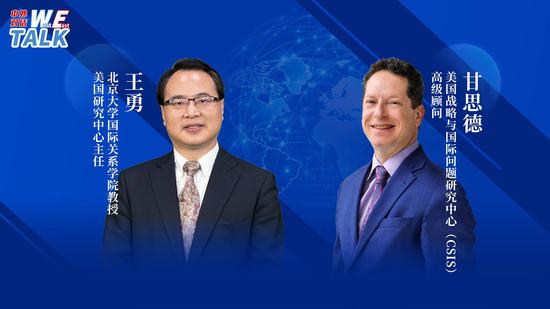
(ECNS)— From December 11 to 12, Chinese Vice Foreign Minister Xie Feng held talks with visiting U.S. Assistant Secretary of State for East Asian and Pacific Affairs Daniel Kritenbrink and National Security Council Senior Director for China Laura Rosenberger in Langfang, Hebei Province. The two sides had in-depth face-to-face communication after Xi-Biden meeting at the G20 in Indonesia. As the Chinese Foreign Ministry spokesperson noted on December 12th, the two sides agreed that the meeting and talks are candid, in-depth, and constructive, and agreed to maintain communication.
In the latest W.E. Talk, Scott Kennedy, Senior Adviser and Trustee Chair in Chinese Business and Economics at the Center for Strategic and International Studies (CSIS) and Wang Yong, Director of Center for IPE & Professor of International Studies, Peking University were invited to discuss how China and the United States can seize the current opportunity to better promote dialogue and exchanges and bring bilateral relations back to the track of healthy and stable development.
Wang Yong said that there is a possibility of “reset” after Xi-Biden meeting in Bali. He thinks that the two countries currently need to manage their differences and competition and strengthen cooperation and communication in areas both sides can cooperate. “I think China and the U.S. are facing a big window of opportunity, especially in the year 2023.” says Prof. Wang.
Mr. Kennedy just paid a visit to China recently and had in-depth-exchanges with scholars and experts in Beijing and Shanghai. He holds that to stop the current “Echo Chamber Effect” in the two countries, there must be face-to-face exchanges conducted by scholars from the two sides to enable richer and more open dialogues and exchanges.
Here are excerpts of the dialogue.
China News Service: Are China and the U.S. in a zero-sum relationship in sci-tech and innovation sectors?
Wang Yong: China and the U.S. have been complimentary in the sci-tech and innovation area. They compete with each other but also promoting each other under the market laws. In the past 20 years, U.S. investments, technologies, idea and visions have spurred the development of Chinese innovative companies. Leveraging on the Chinese market, Chinese companies have made enormous progress in big data, AI, and the Internet economy.
In spite of current competitions, China and the U.S. are still complementary in terms of industrial innovation, with a lot of common interests. In the case of the chip industry, China has taken up 60% of the global chip consumption. The U.S. currently is enhancing the resilience of the supply chain of chips and encouraging other countries to invest in the U.S. However, if China stops buying chips from the U.S. and the U.S. loses the Chinese market, the output of the U.S. chip industry will be greatly impacted. And in the end, due to the decline in profits, the R&D speed will also be slowed down and the so-called national security interests of the U.S. will be harmed.
If we see things through a purely economic and market perspective, bilateral cooperation will continue. Unfortunately, the U.S. government is replacing the logic of economics and markets with that of politics and national security. We hope that the United States will correct this paranoid way of thinking about decision-making and follow the laws of the market.
Scott Kennedy: To restore relatively stable relations, emphasize comparative advantages, and strengthen scientific and technological cooperation, both countries must make some concessions and adjustments.
China News Service: Face-to-face communication between China and the U.S. have been in decline due to the Covid-19 pandemic. Some channels have been blocked and there is even a risk of “limited decoupling” in economic terms. In addition, people-to-people exchanges are also hindered. So could you please offer some suggestions on these problems?
Scott Kennedy: I think that Washington and Beijing are kind of trapped in an “echo chamber”. The lack of exchanges results in an absence of updated, first-hand information. That’s why it is hard to change the situation and reach new consensus. Therefore, misunderstandings increase and the countries get estranged.
To address these problems, we need communication, especially face-to-face communication. Online communication is far from enough. On the contrary, it may add to the misunderstandings. Only if you are willing to get on board the plane and spend some time in a foreign country and get involved in the society, then you get a chance to really listen to others and figure out why they make such decisions.
We need experts like Prof. Wang to come to the U.S. and other U.S. experts who study China to really go to China. Only then can we have richer and more open exchanges and dialogues.
Wang Yong: Prof. Kennedy recently visited Beijing. And he is among the first group of American scholars who visited China since the pandemic. He has played a very significant role in promoting the resumption of cultural and academic exchanges between China and the United States, and I personally admire his courage and patience.
So, if I’m invited by his colleagues and with a possible condition, I would be more than happy to visit the United States with other Chinese scholars to continue our dialogue.
China News Service: Recently, there appears to be some signals of remapping and repositioning the China-U.S. relationship. How do you see the U.S.-China relations in the near future?
Scott Kennedy: Many scholars I met in Beijing and Washington have realized this. Both sides have known that they must enhance communication, and there’re room and environment for these communications so that they can adjust some of their policies accordingly on some points.
The period from the end of the 20th CPC National Congress and the end of the U.S. midterm election is a window for China-U.S. relations to go forward. The 13 months before the end of 2023 is key and we must seize the opportunity to discuss how to mitigate misunderstandings, take countermeasures to some specific problems, and enhance mutual trust. We should seize the opportunity of the Xi-Biden meeting to strengthen communication. For example, can we have regular consultations on economic issues? In the past, there were various mechanisms, such as regular meetings of the U.S. and Chinese Ministries of Commerce and an annual economic and strategic dialogue between the two governments. I’m definitely more optimistic than most people in Washington.
Wang Yong: Affected by the pandemic and domestic reasons, China and the United States now lack communication and strategic mutual trust. But rationally speaking, the two countries complement each other economically and are natural partners. As two permanent members of the UN Security Council and important nuclear powers, they bear special responsibilities for regional and global peace and stability. There is a large space for both countries to learn from each other and for mutual learning among civilizations.
The way out for China and the United States is to enhance mutual understanding, appreciation, and even praise each other. They should see and learn from each other’s strengths, avoid shortcomings in their own governance. Based on this goodwill and understanding, there is still many ways out for China-U.S. relations. I am cautiously optimistic about this.
China News Service: Chinese Vice Foreign Minister Xie Feng held talks with visiting U.S. Assistant Secretary of State for East Asian and Pacific Affairs Daniel Kritenbrink and National Security Council Senior Director for China Laura Rosenberger in Langfang, Hebei Province. What do you think of the talks? And do you think they can bring substantial improvements to the China-U.S. relations?
Wang Yong: The bilateral relationship between China and the U.S. has changed dramatically after the meeting of the two leaders in Indonesia. There’s a possibility of “reset”. The two countries currently need to manage their differences and competition and strengthen cooperation and communication in areas both sides can cooperate. I think China and the U.S. are facing a big window of opportunity, especially in the year 2023.
The reasons for the change in the China-U.S. relations are, on the one hand, the expectations from the international community that both countries, as two major powers, can sit down and work to stabilize the relationship and reduce the damage that out-of-control competition may bring to regional and international orders; on the other, as the world’s two largest economies, China and the U.S. have the special responsibility to stabilize the global economy and prevent a further global downturn. Both sides have reasons to strengthen macroeconomic coordination and seek cooperation in areas including energy and food security, as well as in climate change and other global issues.
However, if China and the U.S. fail to manage their differences and competition, the situation will get out of control and end up in conflicts that will ultimately harm the interests of both countries. In this sense, it is of great importance to reduce miscalculation, manage differences, and set up “guardrails” for competition, which serves mutual interests.










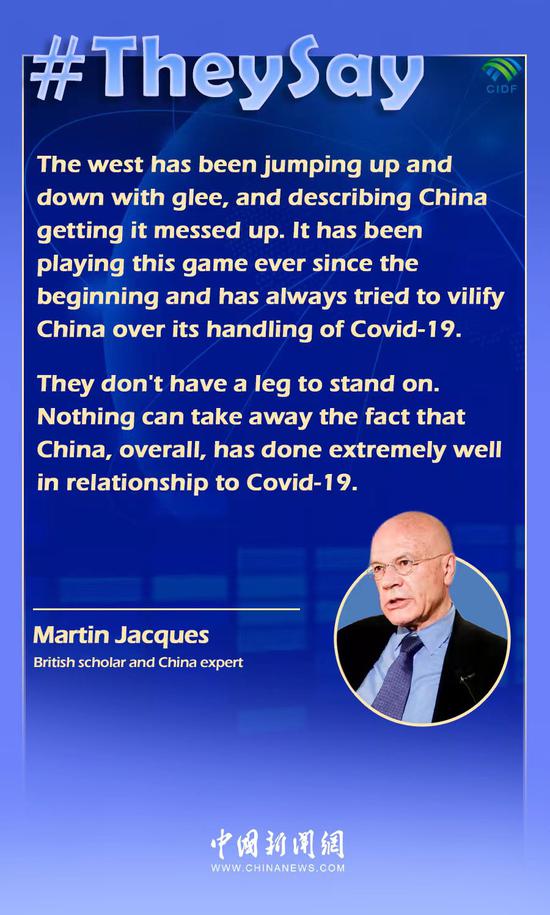



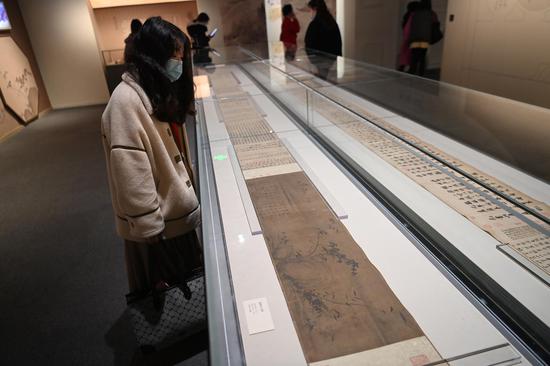


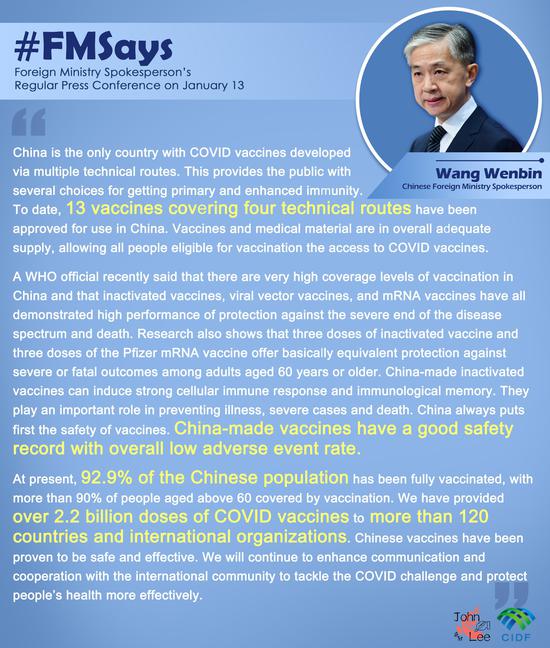



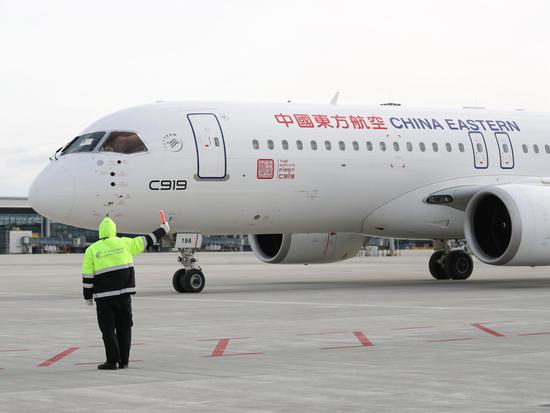
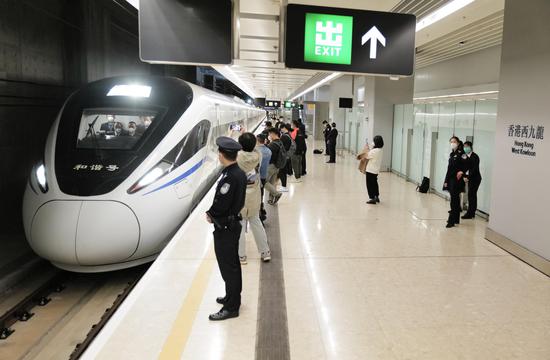

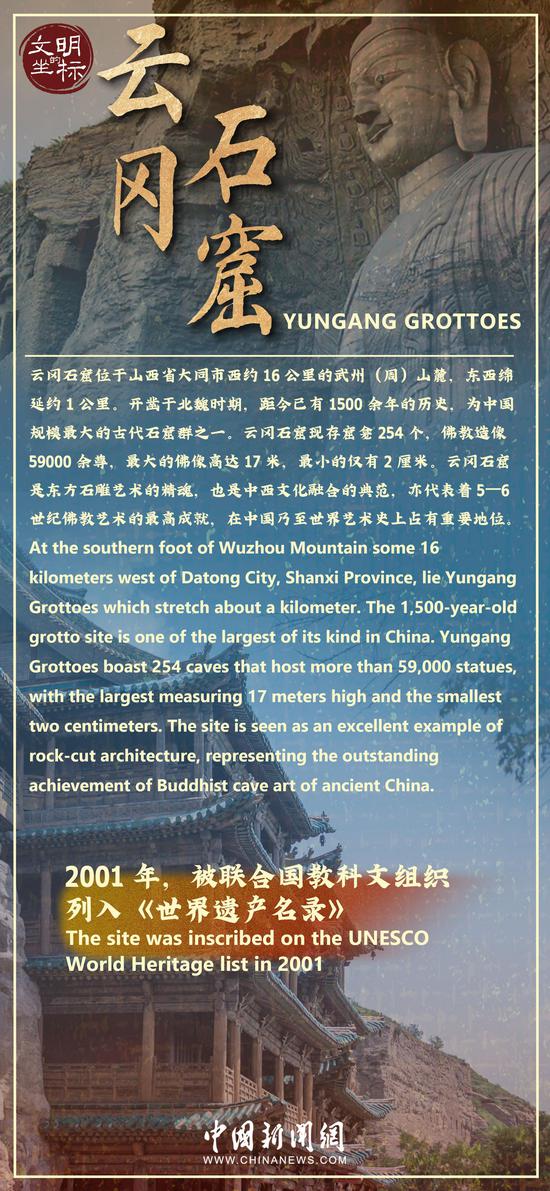

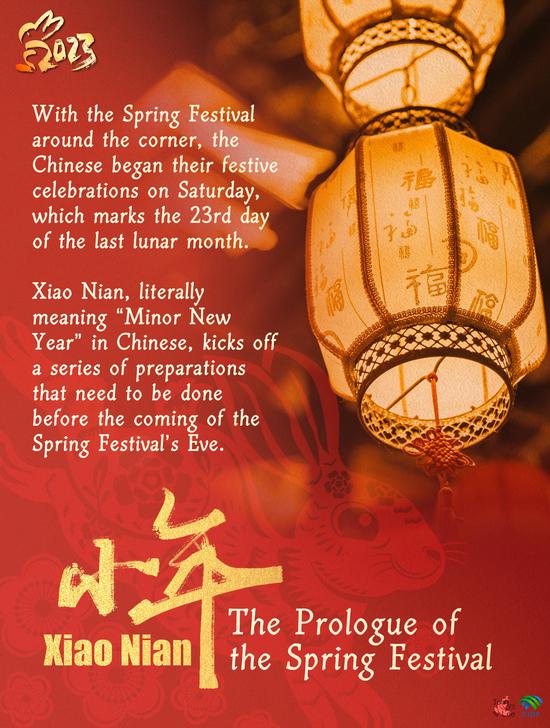
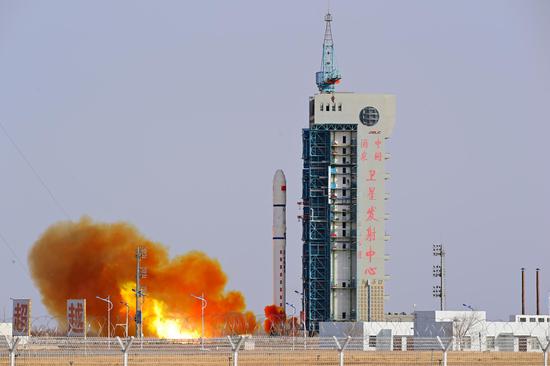

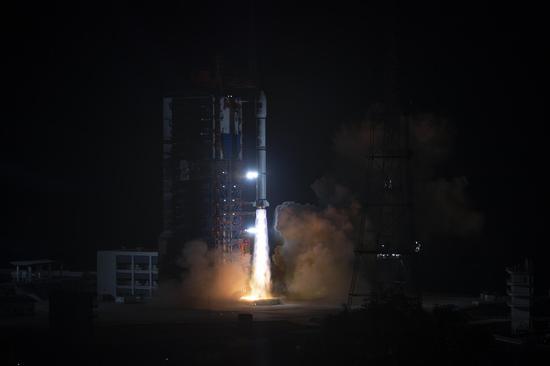




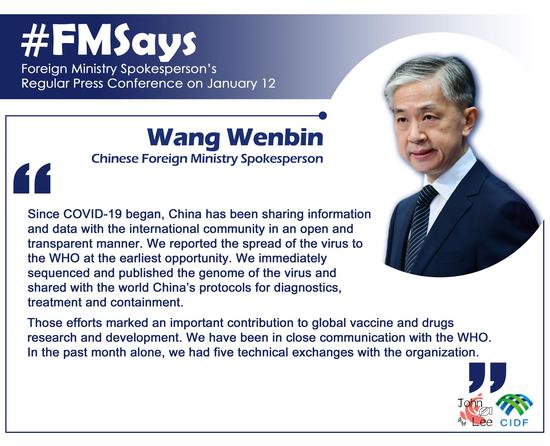

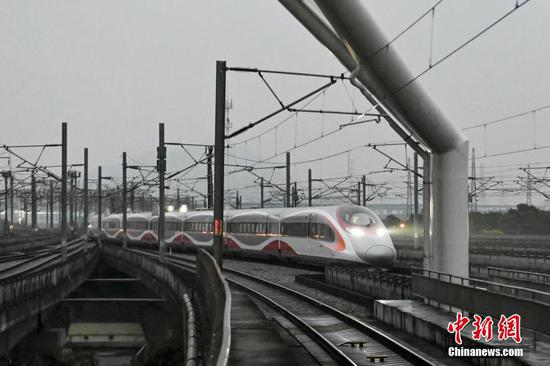
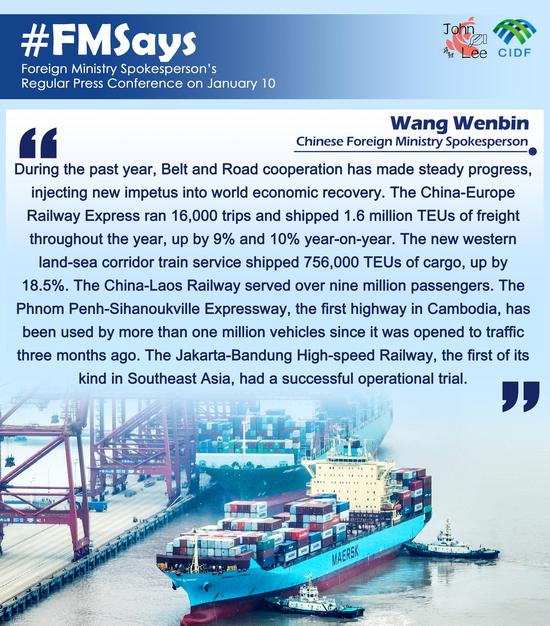
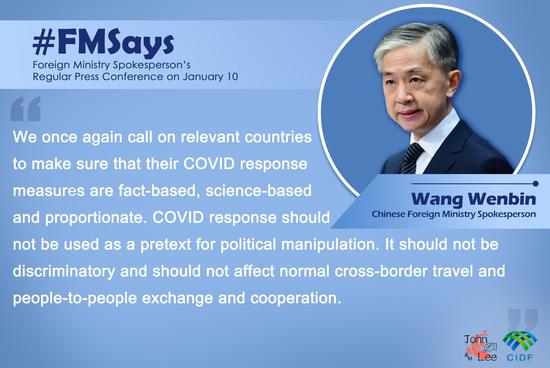
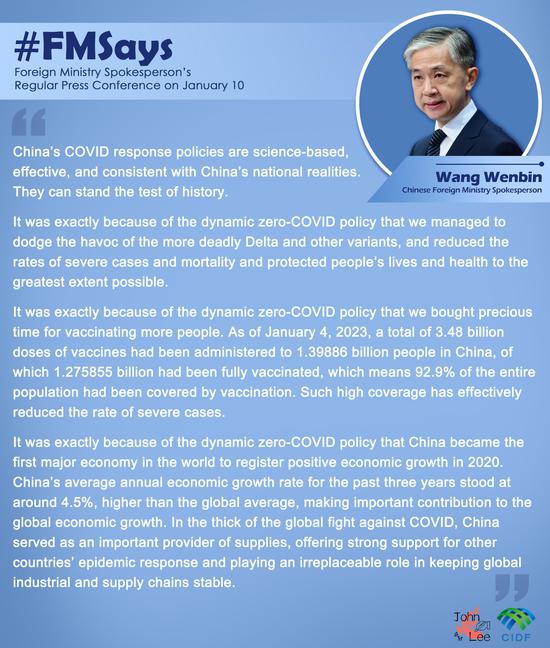

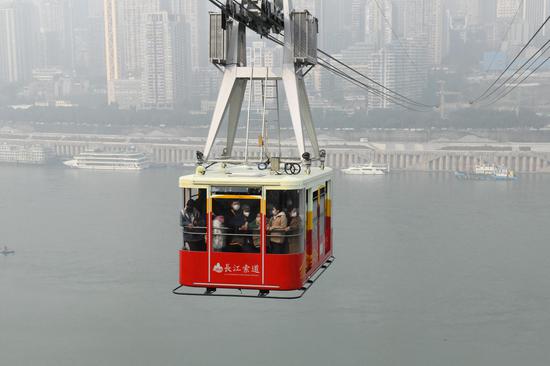


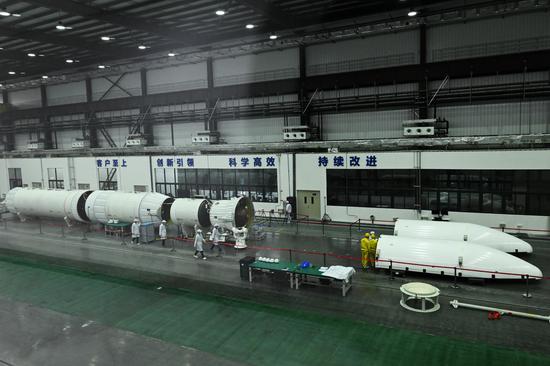





 京公网安备 11010202009201号
京公网安备 11010202009201号